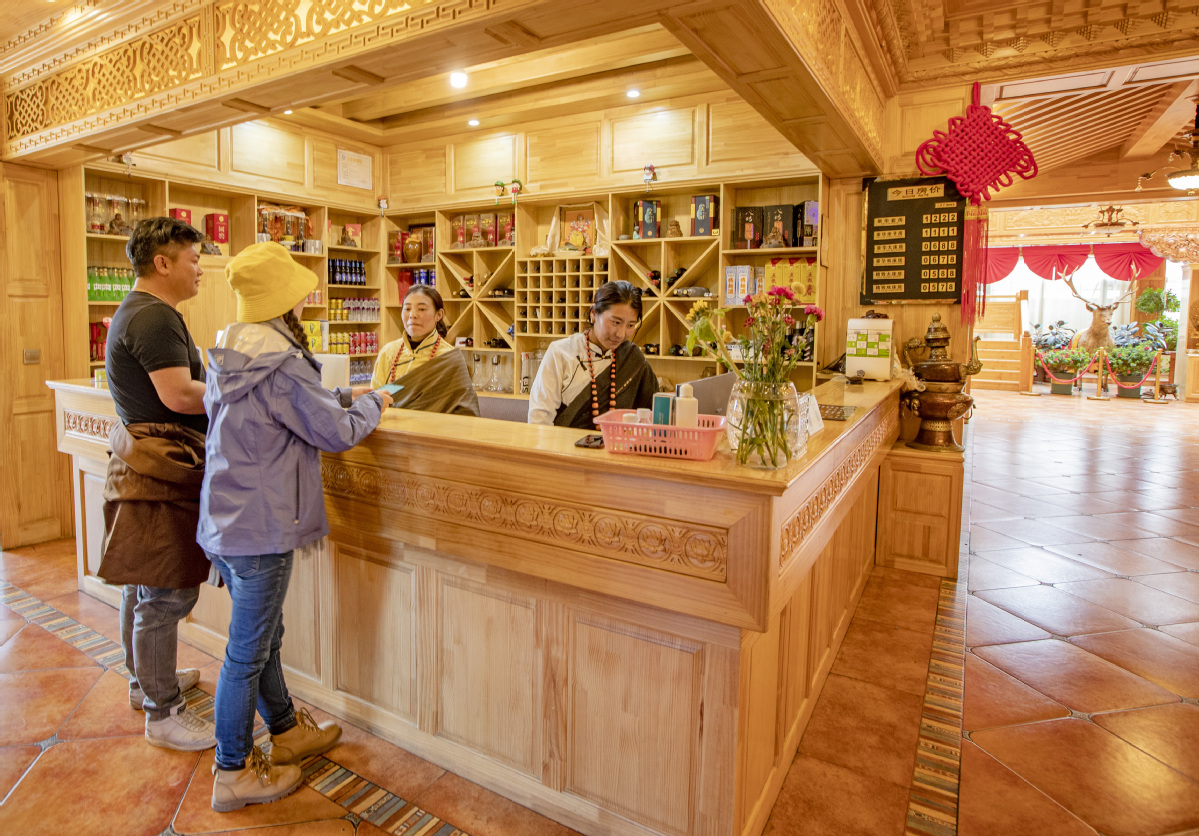Helping hosts to serve guests again


Online searches for "Kezhan listings" for the Labor Day holiday increased by more than 2.2 times year-on-year as of April 18.
The top 10 resort destinations that have seen the bookings growing rapidly are Zhangjiajie, Guilin, Huzhou, Zhoushan, Beihai, Weihai, Lijiang, Xiamen, Sanya and Qinhuangdao. Weekly bookings in Sanya are already close to the level of the same period last year.
China's tourism market saw a strong recovery during the five-day Labor Day holiday. With regular epidemic control measures in place, the tourism market basically recovered to 50 percent of the level seen in the same period last year, said Wang Xiaofeng, an official with the Ministry of Culture and Tourism.
Various destinations in China received 115 million domestic tourists during the holiday, generating a revenue of 47.56 billion yuan ($6.72 billion), he said.
Tujia, a local online platform in the mold of Airbnb, said Labor Day holiday bookings for short-term rentals listed on its app/website reached 65 percent of the level during the same period last year. Compared to early April, the early May bookings were up 200 percent.
Bookings for rural homestay accounted for 48 percent during the five-day holiday, up 6 percentage points on a yearly basis, while urban homestays took up 52 percent. According to Tujia, Deqing county in Huzhou of Zhejiang province, Pixian county in Chengdu of Sichuan province and Chun'an county in Hangzhou of Zhejiang province are much favored by tourists.
It noted that the average length of stay is 3.2 nights, with group tours, which consist of three to five family members, dominating all tour types.
Tujia added the search and bookings for homestays quadrupled in two hours after Beijing's municipal government announced on April 29 that it will lower its response level of public health emergency from level 1 to level 2, compared with the same period of the previous day.
Self-driving trips have become an increasingly popular choice for domestic Chinese travelers as they preferred open air after travel restrictions were relaxed amid the waning COVID-19 epidemic, according to a report released by short video platform Kuaishou, and Chinese mapping service provider AutoNavi Software Co, also known as Gaode Map.
Chen Liteng, an analyst at the Internet Economy Research Institute, said this year's Labor Day holiday was longer, stretching over five days, and people's willingness to travel was high after having been confined indoors for a long period of time due to the epidemic.
This factor has greatly spurred tourism and the short-term rental industry. "The holiday is also an important node for epidemic prevention and control."
Nathan Blecharczyk, Airbnb's co-founder and chairman of Airbnb China, underlined that the importance of the Chinese market for the global company has not changed despite COVID-19.
Airbnb, he said, will continue to invest in China and do everything it can to support the local host community.
"Travel is one of the most resilient industries in the world," said Peng Tao, president of Airbnb China, adding that the company has seen vigorous growth in short-haul trips in the domestic market, which may be the first type of trips to recover.
Peng is bullish on the prospects of the travel and short-term rental sector, saying demand for weekly and monthly rentals has surged during the epidemic. "Based on our latest survey, nearly 60 percent of hosts said they were willing to accept more weekly and monthly rentals to alleviate the operational pressure.
"Airbnb is built on trust and community… After getting through the outbreak, I believe people-to-people connections that power our community will be stronger than ever before."
There is no doubt that safety and health factors are the main drivers of confidence in homestays. To address travelers' concerns, the company has launched a "rest assured stays" program to promote listings with high-level cleanliness and sanitization standards, and promoting guidelines of home cleaning and sanitization to the host community.
According to a recent survey conducted by Airbnb China, Chinese hosts are confident about the future of short-term rentals, with almost all of the hosts saying they feel positive or neutral about engaging in short-term rentals after the outbreak. Among hosts with positive attitudes, 72 percent said they would either maintain or increase their Airbnb hosting activity.




































